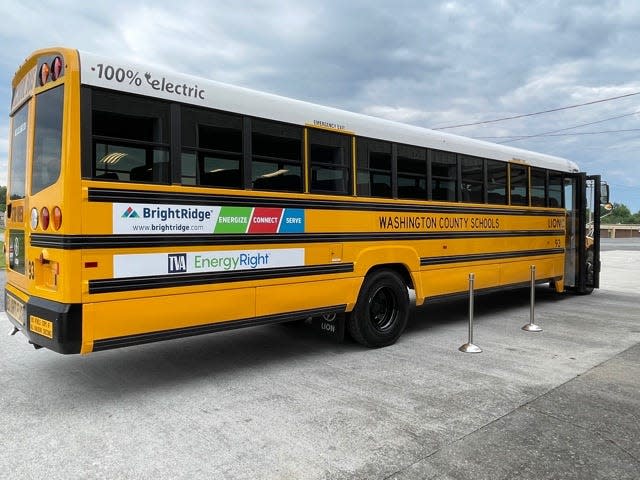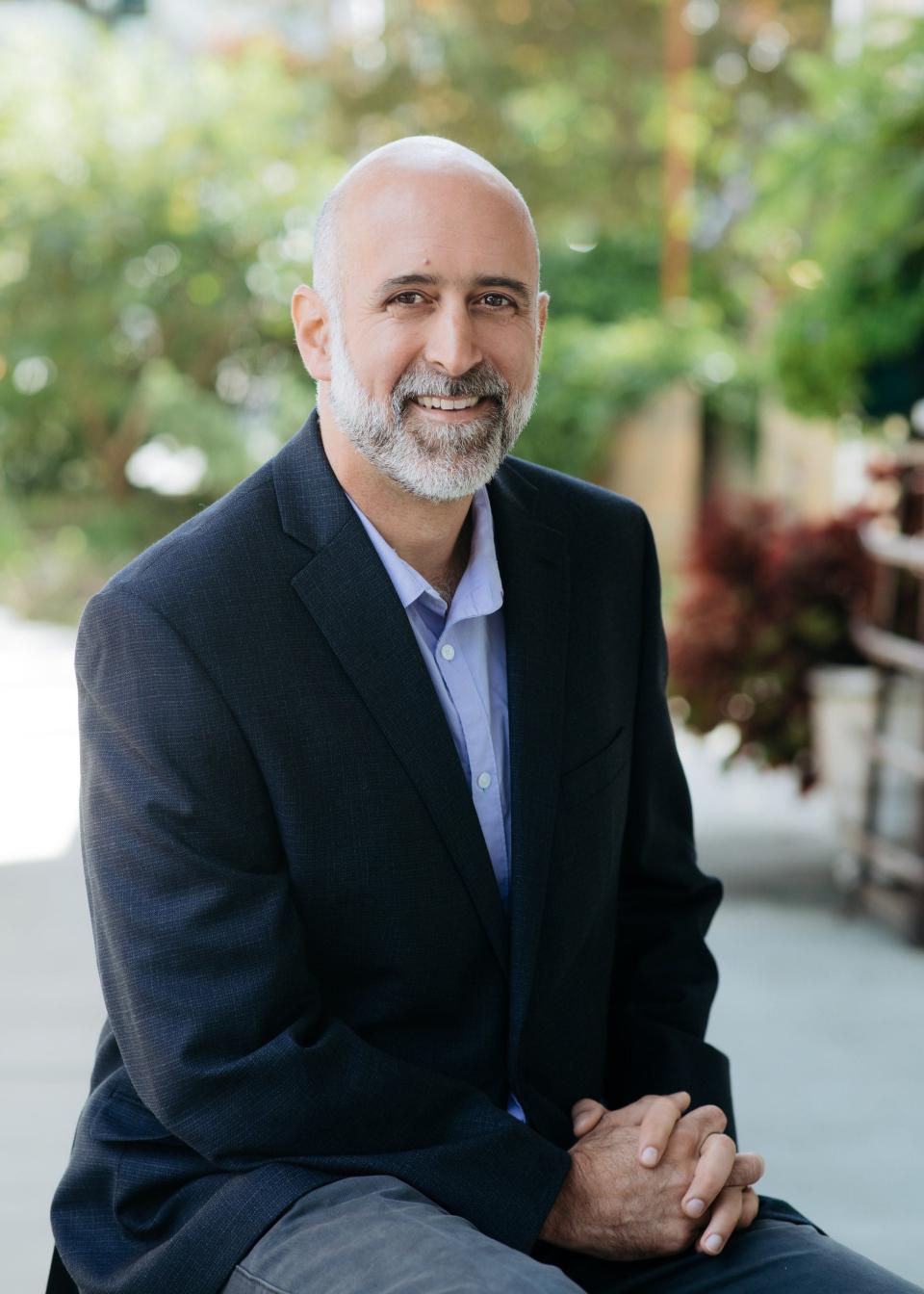Electric school buses make more sense for our economy and the environment| Opinion
Re: "Propane school buses make more sense than electric for Tennessee school districts," by Tucker Perkins, Aug. 2.
Mr. Perkins’ op-ed about how propane school buses make more sense than electric for Tennessee School Districts, reminded us that propane has played an interim role in reducing diesel school buses' public health and environmental impacts.
However, interim means until something better is available, which is the reality now with electric school buses (ESBs).
Propane is a fossil fuel, and America is ready to leapfrog fossil fuels to electric cars, trucks and buses.
Electric vehicles like ESBs offer a better solution for Tennessee school districts concerned about their students’ health, the environment, and their pocketbooks.
Electric vehicles are the responsible economic choice
School districts operating ESBs report that the cost per mile is approximately half that of propane buses. While ESBs currently have a higher upfront cost, school districts and taxpayers save between $4,000 to $11,000 annually per bus on operational costs like fueling, maintenance and repairs when compared to their diesel counterparts.

With funding from the EPA’s Clean School Bus Program covering the costs of ESBs and charging infrastructure, Tennessee school districts can see a return on this investment on day one.
Hear more Tennessee Voices: Get the weekly opinion newsletter for insightful and thought provoking columns.
ESBs are the best economic choice because electricity is cheaper than diesel or propane and does not suffer from the volatile price swings the oil and natural gas markets are currently experiencing. Electricity pricing is regulated and predictable.
School districts also have the flexibility to charge ESBs off-peak and at night when rates are even lower.
Moreover, operational costs are cheaper because ESBs have no transmissions, exhaust systems and internal combustion engines that require continual maintenance and repair. Regarding battery range, current model ESBs have ranges of from 75 to 210 miles that cover the majority of school bus routes.
Electric school buses are cleaner
ESBs have no tailpipes and zero tailpipe emissions, keeping our lungs and the environment safe. Meanwhile, propane bus tailpipes emit harmful nitrogen oxides, sulfur oxides and volatile organic compounds.
These pollutants contribute to respiratory ailments, such as asthma, putting our children’s and communities’ health at risk. Plus, propane is a by-product of natural gas processing and crude oil refining— and nothing is clean about that.

Mr. Perkins is correct that there are upstream emissions to reconcile with electricity generation powering ESBs, but he failed to mention that the problem is being addressed as our utilities are increasingly generating electricity with renewable energy technologies like wind and solar.
For example, Tennessee Valley Authority has reduced carbon emissions 57% since 2005, aims for a 70% reduction by 2030 and net-zero emissions by 2050. So unlike propane buses, ESBs are clean today and will get even cleaner as utilities ramp up clean energy, delivering cumulative public health and environmental benefits.
Hear from Tennessee's Black Voices: Get the weekly newsletter for powerful and critical thinking columns.
School districts across the country are choosing electric buses
There are around 500,000 school buses nationwide. Despite being in the market much longer than ESBs, the 22,000 propane buses in service constitute less than 5% of the nation’s school bus fleet.

Your state. Your stories. Support more reporting like this.
A subscription gives you unlimited access to stories across Tennessee that make a difference in your life and the lives of those around you. Click here to become a subscriber.
Meanwhile, just this past year alone, ESBs have seen a 10-fold increase in orders, with school districts committing to 12,275 ESBs in 38 states. The ESB buying boon rightly has the propane bus industry concerned.
Now is the time to wean ourselves from fossil fuel dependency with its environmental and public health-endangering emissions and volatile pricing and embrace electric vehicles— especially school buses. After all, we owe it to our children’s future not to settle for an interim fix when there’s a better solution already charged up and ready to go.
Stan Cross is the electric transportation policy director at the Southern Alliance for Clean Energy, a 35-year-old non-profit based in Knoxville that promotes responsible and equitable energy choices to ensure clean, safe, and healthy communities throughout the Southeast.
This article originally appeared on Nashville Tennessean: Electric school buses make more sense for our environment and economy

